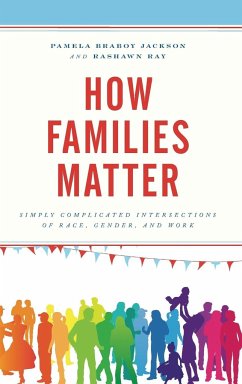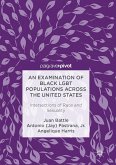The family remains the most contested institution in American society. How Families Matter: Simply Complicated Intersections of Race, Gender, and Work explores the ways adults make sense of their family lives in the midst of the complicated debates generated by politicians and social scientists. Given the rhetoric about the family, this book is a well overdue account of family life from the perspective of families themselves. The purpose of this book is to provide the reader with a whole view of different types of families. The chapters focus on contemporary issues such as who do we consider to be a part of our family, can anyone achieve family-life balance, and how do families celebrate when they get together? Relying on stories shared by a racially/ethnically diverse group of forty-six families, this book finds that parents and siblings cultivate a family identity that both defines who they are and influences who they become. It is a welcomed installment to conversations about the family, as families are finally viewed within a single study from a multicultural lens.
Hinweis: Dieser Artikel kann nur an eine deutsche Lieferadresse ausgeliefert werden.
Hinweis: Dieser Artikel kann nur an eine deutsche Lieferadresse ausgeliefert werden.








